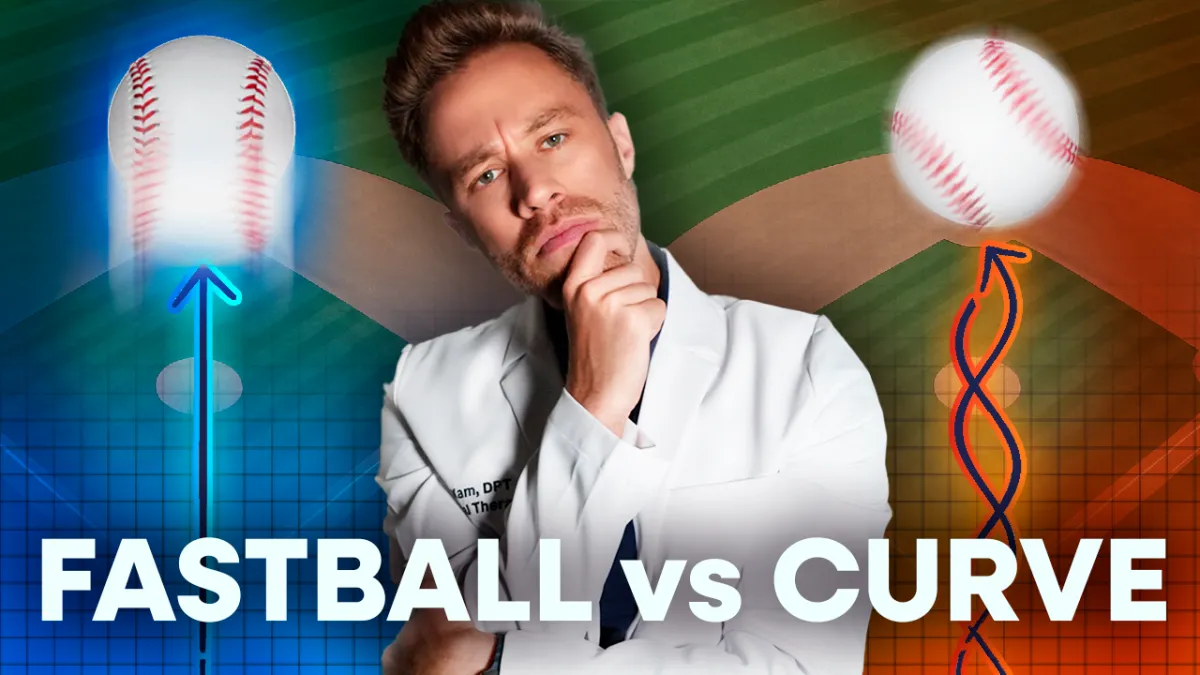
Are Fastballs Harder on Your Shoulder Than Curveballs?
Are Fastballs Harder on Your Shoulder Than Curveballs?
The Problem Pitchers Face
If you’ve ever wondered are fastballs harder on your shoulder than curveballs, you’re not alone. Every pitcher feels the stress these pitches place on their arm — but which one actually takes the bigger toll? This isn’t just about performance. It’s about protecting your shoulder from serious injury.
My Experience as a Specialist
I’m Dr. Kam, a double-fellow and residency-trained sports, orthopedic, spine, and manual physical therapist. I’ve worked with countless baseball athletes who want to throw harder and stay healthy. With both research and hands-on clinical work, I’ve studied the mechanics of fastballs and curveballs to give you a clear answer.
The Biomechanics of Fastballs vs. Curveballs
A recent study of 13 collegiate pitchers tracked shoulder motion with 3D motion capture. The results showed no major differences at the glenohumeral joint (the actual ball-and-socket of the shoulder) between the two pitches.
But here’s the key: the scapulothoracic mechanics — how your shoulder blade moves against your rib cage — did differ.
How Fastballs Load the Shoulder
Fastballs showed less internal rotation of the shoulder blade but more posterior tilt at critical points like maximum external rotation. This means the shoulder blade tilts back more during a fastball compared to a curveball.
That subtle difference in scapular motion may change how much stress transfers into the shoulder joint and surrounding tissues.
Why These Differences Matter
Even if the actual shoulder joint movement looks similar, the way your scapula stabilizes and moves can impact both power output and injury risk.
For pitchers, that means your training and arm care can’t be cookie-cutter. The demands of a fastball vs. a curveball aren’t identical, and your shoulder needs tailored preparation for both.
Training Takeaways for Pitchers
Don’t treat all pitches the same — fastballs and curveballs stress the shoulder differently.
Train the scapula, not just the rotator cuff — scapular control drills should be a staple.
Prioritize strength under fatigue — most injuries happen late in games, when mechanics start to break down.
Final Answer on Shoulder Stress
So, are fastballs harder on your shoulder than curveballs? The research shows both stress the shoulder, but in slightly different ways. Fastballs demand more from your scapular tilt, while curveballs don’t shift mechanics as much at that level. The smart move isn’t choosing one over the other — it’s building a shoulder that can handle both.
Closing Thoughts
You came here asking if fastballs are harder on your shoulder than curveballs, and the answer is that while the shoulder joint itself works similarly in both, fastballs place different demands on your scapula that may increase stress in subtle but important ways. As a double-fellow physical therapist specializing in baseball, my goal is to give you the clarity and tools to protect your arm while maximizing performance. If you’re ready to keep building a healthier, stronger arm, your next step is to explore these articles or work with me 1-on-1:
👉 Want to see these mechanics broken down visually? Watch my new YouTube video here:
